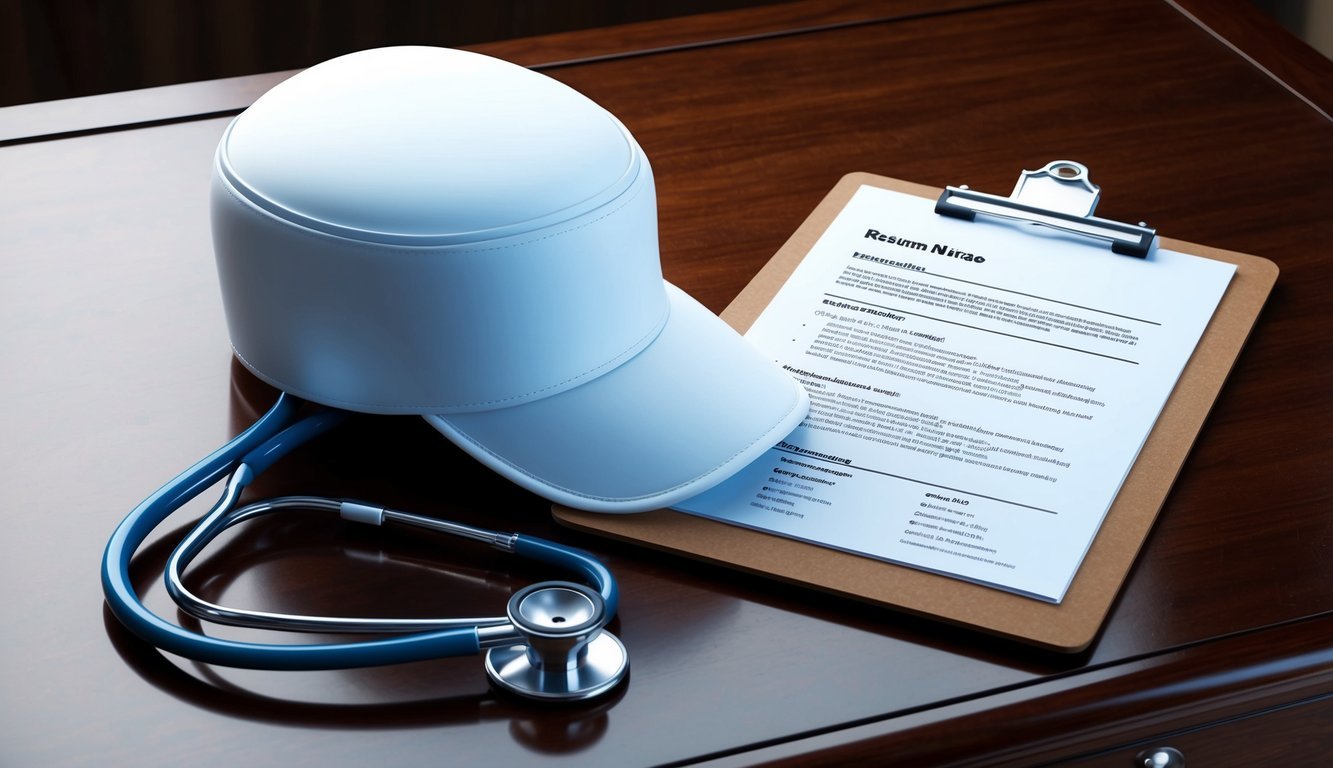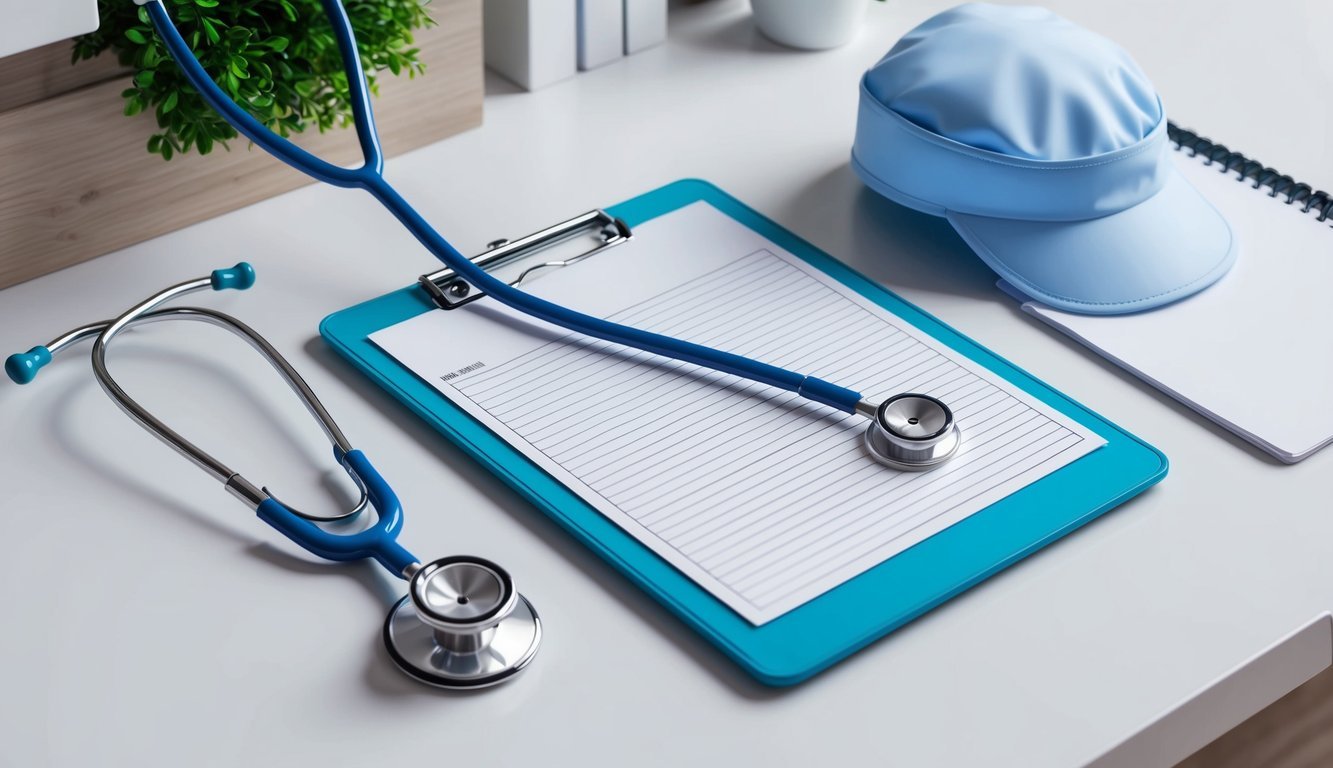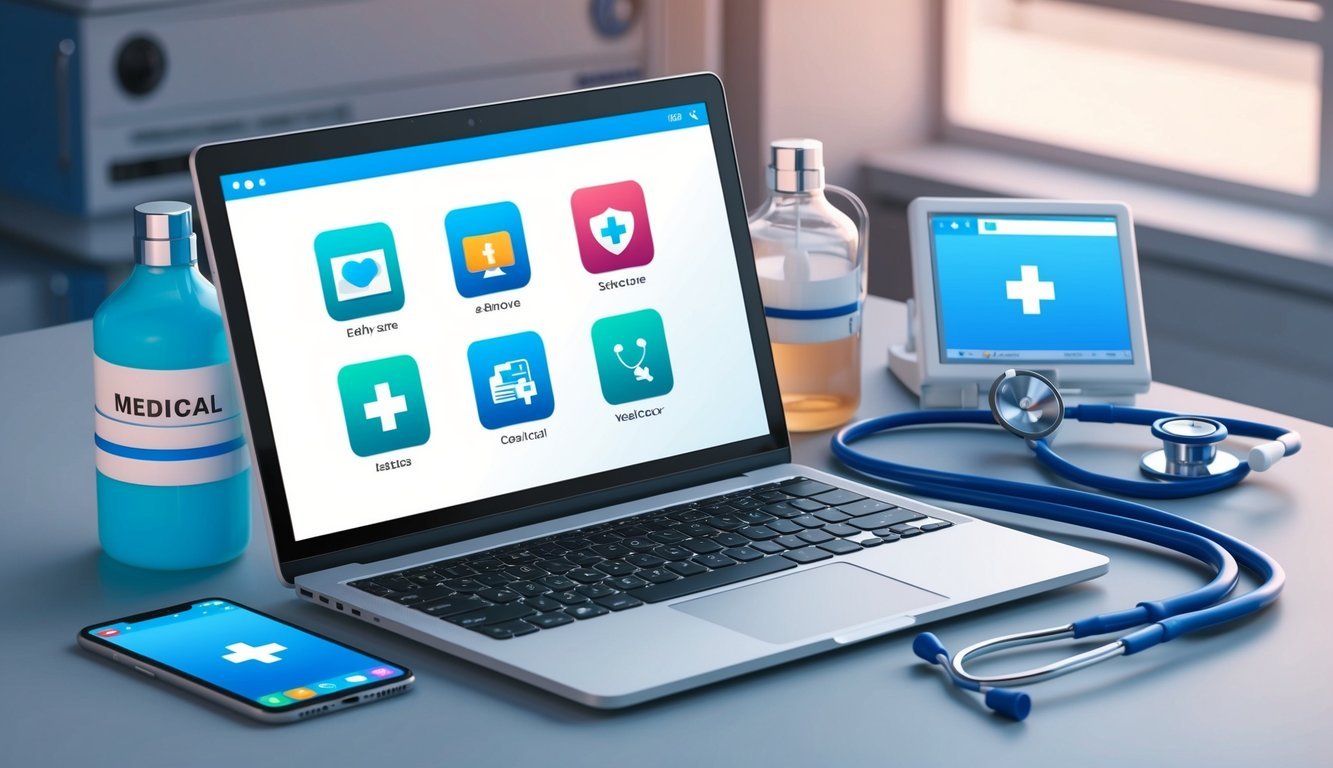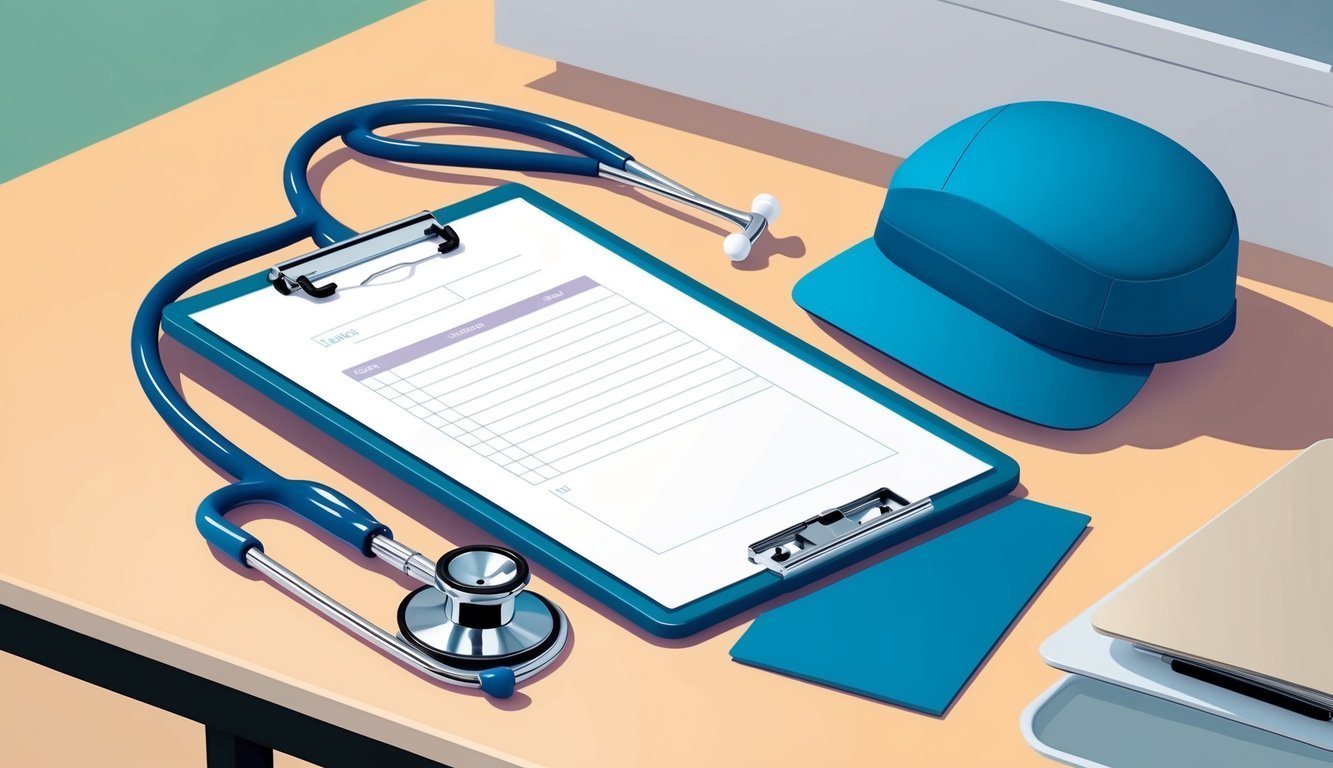Creating a standout nursing resume is essential in a competitive job market.
You want your application to reflect your skills and experience while also capturing the attention of hiring managers.
Using a free nursing resume template can simplify the process and give your resume a polished look that enhances your chances of landing an interview.
Many resources offer free templates specifically designed for nursing professionals, accommodating various experience levels.
For instance, new grad nurse templates help to showcase your educational achievements and internships, while experienced nurse templates allow for a more detailed portrayal of your career.
You can find these useful tools at sites like Nursing Resume Templates and Ultimate Guide to Nursing Resumes.
By selecting a well-structured resume template, you can focus on tailoring the content to highlight your strengths.
This strategy not only saves time but also helps you create a compelling and professional resume.
Investing in a solid format will pave the way for your journey to becoming a successful nurse.
Professional Summary

A well-crafted professional summary is crucial for making a strong first impression in your nursing resume.
It’s your chance to highlight your strengths and suitability for roles in the healthcare industry.
Crafting a Compelling Opening
Begin your professional summary with a powerful opening statement that encapsulates your core qualifications.
This should include your years of experience, nursing specialty, and a notable achievement.
For example:
“As a dedicated registered nurse with over 10 years in pediatric care, I excel in providing compassionate treatment while ensuring patient safety.”
Your opening can also outline your commitment to patient care, which is essential in the nursing field.
Tailor this section to reflect the specific job you are applying for to capture the employer’s attention immediately.
Highlighting Nursing Skills
Following your opening, focus on the key nursing skills that set you apart.
Include both hard and soft skills relevant to the position, such as:
- Clinical Skills: Patient assessment, medication administration, wound care.
- Interpersonal Skills: Effective communication, teamwork, empathy.
Next, mention any specialized certifications or training, such as ACLS or PALS, which enhance your credibility.
Skills should be directly aligned with the job description, emphasizing how you can contribute to the healthcare team effectively.
A targeted professional summary positions you as a strong candidate for your desired role, especially in a competitive job market, by showcasing your strongest attributes and relevant experience.
For more on crafting a nursing resume, visit Nurse.org.
Education and Certifications

A well-structured education and certification section is essential for showcasing your qualifications.
This part of your resume should clearly outline your academic achievements and any relevant nursing licenses or certifications that enhance your candidacy.
Academic Achievements
Your educational background is a key element of your nursing resume.
Include the degrees you have earned, the institutions you attended, and your graduation dates.
If you graduated with honors or received any relevant awards, make sure to highlight them.
Here’s a sample layout for this section:
| Degree | Institution | Graduation Date | Honors/Awards |
|---|---|---|---|
| BSN | University of Nursing | May 2023 | Cum Laude |
| ADN | Community College | May 2020 | Dean’s List |
Additionally, consider adding any relevant coursework that relates to the nursing positions you are applying for.
This can show employers that you possess specific knowledge related to their needs.
Nursing Licenses and Certifications
Licenses and certifications validate your nursing qualifications.
Begin with your registered nursing (RN) license, including the licensing board and license number if applicable.
Ensure you mention any advanced practice licenses, such as Nurse Practitioner (NP) or Clinical Nurse Specialist (CNS).
It is also important to list additional certifications relevant to your nursing specialty, such as:
- Basic Life Support (BLS)
- Advanced Cardiovascular Life Support (ACLS)
- Pediatric Advanced Life Support (PALS)
A table format might look like this:
| Certification | Issuing Organization | Date Obtained | Expiration Date |
|---|---|---|---|
| RN License | State Board of Nursing | June 2023 | N/A |
| ACLS | American Heart Association | January 2024 | January 2026 |
By clearly presenting this information, you showcase your commitment to maintaining necessary skills and knowledge in the nursing field.
For more guidance, check resources like Nurse.org for nursing resume details.
Nursing Experience

Demonstrating your nursing experience effectively is essential for capturing the attention of hiring managers.
This section covers critical areas of your background, from specific clinical experiences to your involvement in professional organizations and volunteer work.
Clinical Experience and Specializations
Detail your clinical experience, emphasizing the settings and specialties in which you’ve worked.
Include specific roles, such as Registered Nurse, ICU Nurse, or Emergency Room Nurse, that reflect your capabilities.
Be sure to mention the types of patients you cared for and any specializations acquired along the way.
For example, if you have an Oncology Nurse Resume, highlight relevant training and treatment experiences.
| Specialization | Setting | Key Skills |
|---|---|---|
| Intensive Care Unit | Hospital ICU | Patient assessment, ventilator management |
| Labor and Delivery | Maternity ward | Maternal-fetal assessment |
| Neonatal Intensive Care | NICU | Neonatal stabilization techniques |
| Operating Room | Surgical department | Aseptic technique, teamwork |
Using metrics such as improved patient outcomes or reduced complication rates can strengthen your narrative.
These details will illustrate your qualifications and contributions to potential employers.
Professional Memberships and Volunteer Work
Active involvement in professional organizations enhances your resume.
Join groups like the American Nurses Association (ANA) or specialty-specific organizations.
These memberships demonstrate your commitment to ongoing education and networking within the nursing field.
Additionally, volunteer work can showcase your dedication to patient care outside a traditional setting.
For instance, volunteer experiences in community health clinics or non-profits provide insight into your compassionate nature and commitment to nursing.
| Organization/Work | Role | Impact |
|---|---|---|
| ANA | Member | Access to resources, networking |
| Local Health Clinic | Volunteer Nurse | Provided free health screenings |
| Nursing Foundations | Board Member | Helped shape community health programs |
Highlighting these elements can emphasize your professional growth and community involvement, rounding out your nursing experience effectively.
Supplementary Sections
Including supplementary sections in your nursing resume can distinguish you from other candidates.
These sections highlight your achievements, ongoing education, and commitment to the field, showcasing your readiness for diverse nursing roles.
Awards and Honors
In this section, you should list any notable awards or honors you’ve received.
Include specifics such as:
- Name of the Award: Clearly state each award’s title.
- Awarding Organization: Mention who presented the award.
- Date Received: Indicate when you received it.
Consider formatting the information in a table for clarity:
| Award Title | Awarding Organization | Date Received |
|---|---|---|
| “Excellence in Nursing” | National Nurses Association | March 2023 |
| “Patient Care Award” | Your Local Hospital | November 2022 |
This section can also include relevant scholarships or recognitions from professional memberships.
By demonstrating your accomplishments, you enhance your credibility and commitment to nursing.
Professional Development and In-Service Training
Highlight relevant professional development activities you have undertaken.
This shows your dedication to improving your skills and knowledge.
Include training programs, workshops, or certifications.
Use bullet points for easy reading:
- CPR Certification: American Heart Association, renewed in 2024.
- Advanced Cardiac Life Support (ACLS): Completed in 2023.
Mention any volunteer work or community health initiatives that have contributed to your growth.
Participation in professional memberships can also be listed here.
Including this information displays your initiative and passion for nursing, which can be beneficial for your cover letter as well.
For additional tips, consider visiting Nurse.org for guidance on crafting an impactful resume.
Technical Skills and Softwares

In the nursing field, having strong technical skills and familiarity with specific software can significantly enhance your efficiency and effectiveness.
This section will explore the essential technology skills that you should highlight in your resume.
Information Technology in Healthcare
Modern healthcare relies heavily on information technology (IT), making it essential for nurses to be proficient with various tools.
Key areas to focus on include Electronic Health Records (EHR) systems, which streamline patient information management.
Familiarity with EHR platforms like Epic or Cerner can set you apart in the job market.
Important IT Skills:
- Data entry accuracy
- Understanding of patient confidentiality laws
- Ability to navigate telehealth systems
Additionally, you should be comfortable using Microsoft Word for documentation.
Proficiency in writing reports, creating care plans, and documenting patient interactions is critical for effective communication.
Proficiency in Nursing Software
Being well-versed in nursing-specific software enhances patient care and documentation accuracy.
Applications like Meditech and Allscripts are commonly used in healthcare settings.
Skills to Highlight:
- Familiarity with medication administration software
- Experience with scheduling and patient management systems
- Ability to generate and analyze reports
Moreover, knowing how to utilize Microsoft Excel for tracking patient data and outcomes is advantageous.
Your ability to effectively use these tools can contribute to improved care delivery and operational success in your nursing role.
Emphasizing your technical skills and software proficiency on your resume can demonstrate your readiness to contribute effectively in a healthcare environment.

